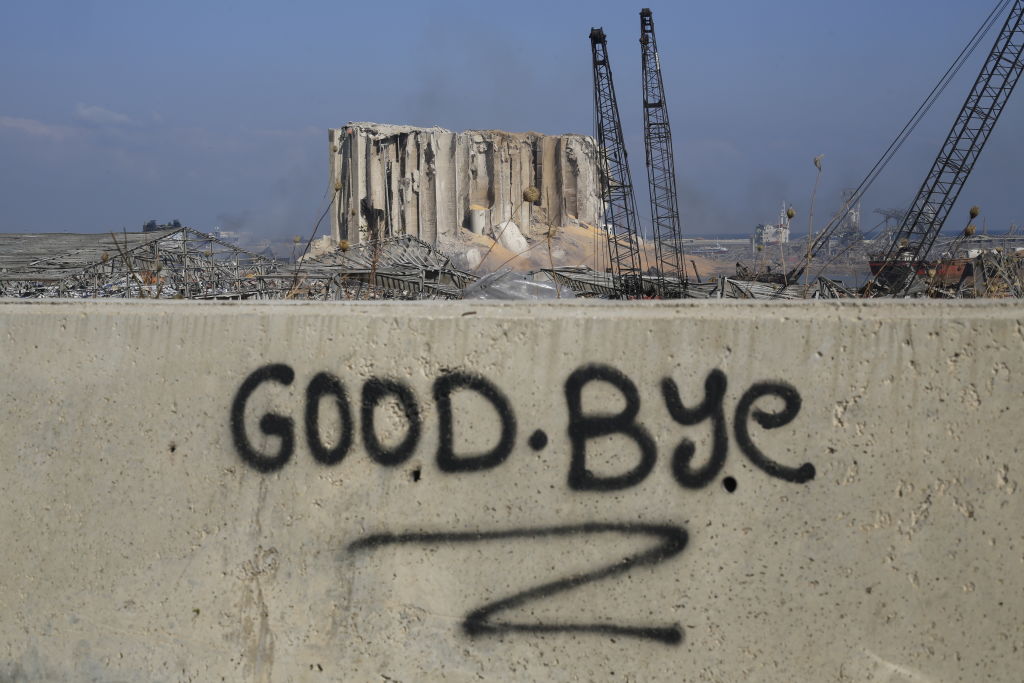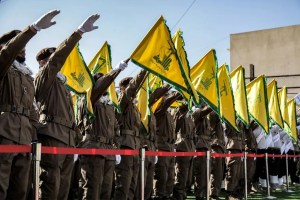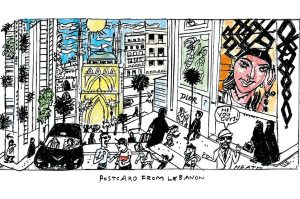Once again, crisis comes to Lebanon. Once again, people are dying young in the Middle East. On Tuesday night an explosion in the port of Beirut killed at least 100 people and injured more than 4,000 others. They say the blast was heard almost 150 miles away in Cyprus. They say it shook the earth all the way across the eastern Mediterranean. It was colossal; first one bang, then another, before a mushroom cloud fanned out over the capital — yet one more tragedy to smother those beneath.
Video captures horrific sound of Beirut blast pic.twitter.com/yMGLvhQ01e
— Borzou Daragahi 🖊🗒 (@borzou) August 4, 2020
Even for a country on as intimate terms with tragedy and as long inured to bombs (one killed its former president Rafik Hariri) as Lebanon, this is a day to remember. The country is already in chaos. Coronavirus has intensified long-standing social and economic woes. In June 2020, its inflation rate was 20 percent, month-on-month — that is to say, prices were 20 percent higher than in May, and almost double June 2019. Lebanese have seen their savings become worthless while, because the state imports almost everything, it is facing the very real prospect of soon not being able to provide the necessities.
And now this. As the clouds began to dissipate the speculation congealed around several narratives. Some blamed Israel or possibly even Donald Trump; the idea that it was an accident seemed not even to occur to most. Then news filtered out that it was mishap not malice — reports of an explosion at a fireworks factory began to seep onto social media and into my WhatsApp messages.
When the truth eventually emerged it was bleak. If it wasn’t malice it was mishap so egregious it seemed almost willful. The cause of the explosion was in fact around 3,000 tonnes of ammonium nitrate — taken from a ship off the coast of Beirut in 2013 and then stored in a warehouse at the port.
Ammonium nitrate is used as a source of nitrogen for fertilizer, but also for creating explosions for mining. Critically, however, it is only explosive under certain circumstances. If safely stored the risk of explosion is minimal but if kept in a confined space and contaminated with items such as fuel oil it can ignite. This is a tragedy that should never have happened.
And the people know it. ‘Trending in Lebanon right now: #علقوا_المشانق, or ‘hang up the nooses’. Months back, people sought accountability & reform. After the #BeirutBlast, many are furious and want revenge,’ tweeted Timour Azhari. ‘On a balcony in Beirut, time to mount the gallows. Only question is, ‘whose heads?” tweeted Lara Bitar with an image of a sign and a noose hung off the side of an apartment balcony.
Mitchell Prothero, a journalist and terrorism analyst for Janes HIS, who spent many years in Lebanon, was clear on the seriousness of what has happened. ‘The situation in Lebanon is now worse than it has been at any time since the 1975-1990 civil war’, he said. ‘This is so bad that the government might be forced to resign. But that doesn’t mean the corrupt sectarian system that infects every aspect of the society will be toppled. And people are talking nooses and guillotines — ordinary people are wondering if anything can change without a literal war on the ruling class.’
He continues: ‘I have no idea whether we will get there, but I have never heard “we need to kill them all” like this.’
The problem for those seeking to reform the Lebanese state is that huge numbers of those they would normally seek to enlist — the country’s poor and dispossessed — remain ardent (if not occasionally fanatical) supporters of the militia group Hezbollah and, to a lesser degree, Amal (a smaller Shia movement). The room for political maneuver is almost non-existent. And if political reform is impossible the only recourse left is the streets — and the chaos and bloodshed that this will ineluctably bring.
The clock is ticking for Michel Aoun’s Lebanese government. The granary has now been destroyed and the port where the wheat would be delivered is gone. Neither will return anytime soon. Now add to this that the hard currency needed to buy wheat is gone, too. And there were electricity problems before the blast blew it out across much of the city. No bread, no heat; no hope. These are the things that start uprisings.
[special_offer]
As Prothero concludes: ‘if things continue as they are there’s only one place where this ends, and it’s not good. The international community needs to bite the bullet and to intervene immediately with aid — and billions and billions of dollars of it, too’.
Any unrest would almost certainly spread outwards from Beirut toward the neighboring Arab states, all of whom are suffering from their own pre-existing social and economic crises intensified by coronavirus.
From there, it could engulf the region. Almost a decade ago we saw an Arab Spring. Now we may witness its miserable epilogue — and millions in the Middle East will continue to suffer, as they always have.
This article was originally published onThe Spectator’s UK website.


















